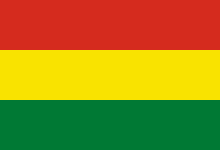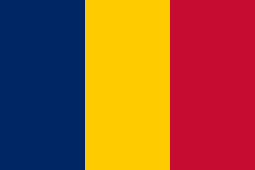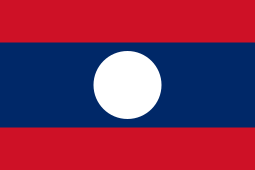List of accidents and incidents involving the DC-3 in 1976
This is a list of accidents and incidents involving the Douglas DC-3A that have taken place in 1976, including aircraft based on the DC-3 airframe such as the Douglas C-47 Skytrain and Lisunov Li-2. Military accidents are included; and hijackings and incidents of terrorism are covered, although acts of war are outside the scope of this list.
January

.svg.png)
February

March

April

.svg.png)
May
.svg.png)
.svg.png)
June

.svg.png)
July
September
.svg.png)

.svg.png)
October

November
.svg.png)
.svg.png)



December
.svg.png)
.svg.png)
Unknown date
.svg.png)
See also
- List of accidents and incidents involving the DC-3 in the 1970s
References
- "CP-573 Accident description". Aviation Safety Network. Retrieved 15 August 2010.
- "T.3-32 Accident description". Aviation Safety Network. Retrieved 15 August 2010.
- "TT-LAG Accident description". Aviation Safety Network. Retrieved 15 August 2010.
- "XW-TAF Accident description". Aviation Safety Network. Retrieved 15 August 2010.
- "XW-TDF Accident description". Aviation Safety Network. Retrieved 15 August 2010.
- "XW-TDR Accident description". Aviation Safety Network. Retrieved 15 August 2010.
- "FAC-676 Accident description". Aviation Safety Network. Retrieved 15 August 2010.
- "ET-AAS Accident description". Aviation Safety Network. Retrieved 15 August 2010.
- "CF-FKZ Accident description". Aviation Safety Network. Retrieved 15 August 2010.
- "ET-ADC Accident description". Aviation Safety Network. Retrieved 15 August 2010.
- "CCCP-13345 Accident description". Aviation Safety Network. Retrieved 12 August 2010.
- "PP-AJC Accident description". Aviation Safety Network. Retrieved 15 August 2010.
- "Accident description". Aviation Safety Network. Retrieved 15 August 2010.
- "CCCP-13369 Accident description". Aviation Safety Network. Retrieved 12 August 2010.
- "C-GKFC Accident description". Aviation Safety Network. Retrieved 15 August 2010.
- "L2-40/15 Accident description". Aviation Safety Network. Retrieved 15 August 2010.
- "T.3-57 Accident description". Aviation Safety Network. Retrieved 15 August 2010.
- "HK-149 Accident description". Aviation Safety Network. Retrieved 15 August 2010.
- "HP-671 Accident description". Aviation Safety Network. Retrieved 15 August 2010.
- "BJ922 Accident description". Aviation Safety Network. Retrieved 15 August 2010.
- "CP-755 Accident description". Aviation Safety Network. Retrieved 15 August 2010.
- "N2010 Accident description". Aviation Safety Network. Retrieved 15 August 2010.
- "C-FIAX Accident description". Aviation Safety Network. Retrieved 15 August 2010.
- "ET-AEJ Accident description". Aviation Safety Network. Retrieved 15 August 2010.
- "C-FHPM Accident description". Aviation Safety Network. Retrieved 15 August 2010.
Notes
^Note A Military versions of the DC-3 were known as C-47 Skytrain, C-48, C-49, C-50, C-51, C-52, C-53 Skytrooper, C-68, C-84, C-117 Super Dakota and YC-129 by the United States Army Air Forces and as the R4D by the United States Navy. In Royal Air Force (and other British Commonwealth air forces') service, these aircraft were known as Dakotas. Licence-built aircraft include the Lisunov Li-2 and Showa L2D.